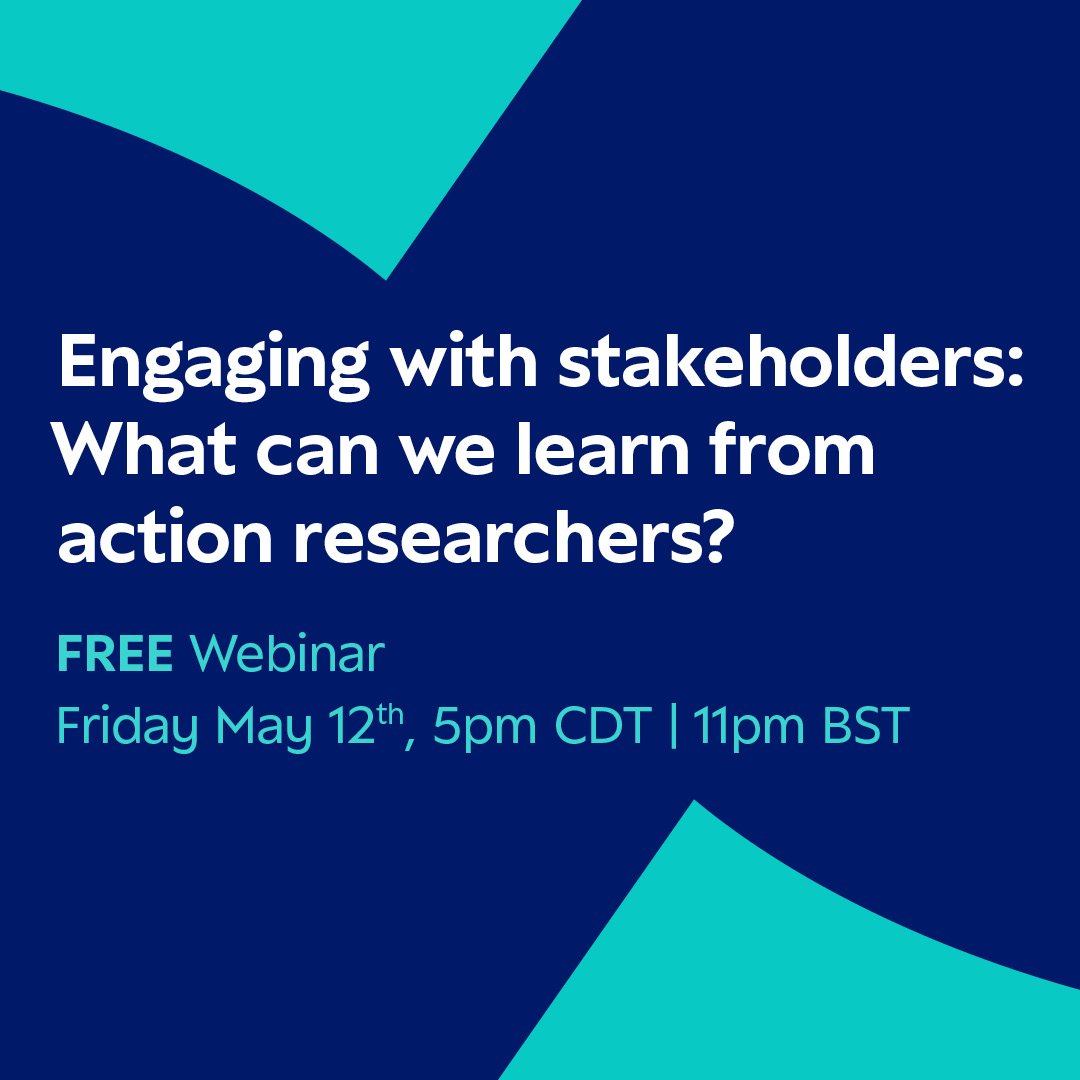Conducting Focus Groups
by Janet Salmons, Ph.D., Research Community Manager for SAGE Methodspace.
The Methodspace focus for Q2 of 2023 is on data collection. While we can ask individual participants questions or prompt them to discuss experiences in one-one interviews, focus groups allow us to hear what participants say to each other. We can conduct focus groups in-person, or online.
The SAGE Encyclopedia of Research Design (Salkind, 2017) explains:
A focus group is a form of qualitative research conducted in a group interview format. The focus group typically consists of a group of participants and a researcher who serves as the moderator for discussions among the group members. In focus groups, there is not always the usual exchange of questions and answers between the researcher and the group that one would commonly envision in an interview setting. Rather, the researcher often ensures that specific topics of research interest are discussed by the entire group in hopes of extracting data and self-disclosure that might otherwise be withheld in the traditional researcher-interviewee environment. In this entry, the purpose, history, format, advantages and disadvantages, and future direction of focus groups are discussed. Purpose
The purpose of focus groups varies depending on the topic under investigation. In some studies, a focus group serves as the primary means of collecting data via a strictly qualitative approach. In other studies, a group discussion or focus group is used as a preliminary step before proceeding to quantitative data collection, usually known as a mixed-method approach. In still other studies, a focus group is employed in conjunction with individual interviews, participant observation, and other qualitative forms of data collection. Thus, focus groups are used to complement a mixed-method study or they have a self-contained function, given their ability to function independently or be combined with other qualitative or quantitative approaches. As a result of their versatility, focus groups serve the needs of many researchers in the social sciences.
Salkind, N. J. (2010). Encyclopedia of research design (Vols. 1-0). Thousand Oaks, CA: SAGE Publications, Inc. doi: 10.4135/9781412961288
Focus Group Methods
Ferrari, E. (2022). Visual focus groups: Stimulating reflexive conversations with collective drawing. New Media & Society, 0(0). https://doi.org/10.1177/14614448221136082
In this methodological article, I introduce a qualitative research method, called the visual focus group (VFG), which incorporates a collective drawing task within the structure of a focus group. The VFG was specifically developed to support engaged research about how activists conceptualize the political role of technology, by stimulating participants to reflect on their unspoken assumptions about digital technologies. After reviewing the relevant literature on focus groups and graphic elicitation techniques, the article presents two types of VFGs: diagnostic and speculative. While diagnostic VFGs are primarily a research tool meant to enable researchers to assess how people envision technology, speculative VFGs encourage participants to imagine better digital technologies. I describe the structure of both types of VFGs and offer examples of their outputs; I then discuss the limitations of this method and propose other research topics for which it might be used.
Onwuegbuzie, A. J., Dickinson, W. B., Leech, N. L., & Zoran, A. G. (2009). A Qualitative Framework for Collecting and Analyzing Data in Focus Group Research. International Journal of Qualitative Methods, 1–21. https://doi.org/10.1177/160940690900800301
Abstract. Despite the abundance of published material on conducting focus groups, scant specific information exists on how to analyze focus group data in social science research. Thus, the authors provide a new qualitative framework for collecting and analyzing focus group data. First, they identify types of data that can be collected during focus groups. Second, they identify the qualitative data analysis techniques best suited for analyzing these data. Third, they introduce what they term as a micro-interlocutor analysis, wherein meticulous information about which participant responds to each question, the order in which each participant responds, response characteristics, the nonverbal communication used, and the like is collected, analyzed, and interpreted. They conceptualize how conversation analysis offers great potential for analyzing focus group data. They believe that their framework goes far beyond analyzing only the verbal communication of focus group participants, thereby increasing the rigor of focus group analyses in social science research.
Focus Group Methods with Young Participants
Adler, K., Salanterä, S., & Zumstein-Shaha, M. (2019). Focus Group Interviews in Child, Youth, and Parent Research: An Integrative Literature Review. International Journal of Qualitative Methods. https://doi.org/10.1177/1609406919887274
Abstract. Focus groups are becoming increasingly popular in research, especially in parent and child research. Focus group interviews allow participants to tell their own stories, express their opinions, and even draw pictures without having to adhere to a strict sequence of questions. This method is very suitable for collecting data from children, youths, and parents. However, focus group interviews must be carefully planned and conducted. The literature on focus group interviews with adult participants is extensive, but there are no current summaries of the most important issues to consider when conducting focus group interviews with children, youths, or parents. This article outlines the use of focus groups in child, youth, and parent research and the important factors to be considered when planning, conducting, and analyzing focus groups with children, youths, or parents.
Brown, C. A., Revette, A. C., de Ferranti, S. D., Fontenot, H. B., & Gooding, H. C. (2021). Conducting Web-Based Focus Groups With Adolescents and Young Adults. International Journal of Qualitative Methods. https://doi.org/10.1177/1609406921996872
Abstract. This methodologic paper aims to update researchers working with adolescents and young adults on the potentials and pitfalls associated with web-based qualitative research. We present a case study of synchronous web-based focus groups with 35 adolescents and young women ages 15–24 years old recruited from a clinical sample for a mixed methods study of heart disease awareness. We contrast this with two other studies, one using asynchronous web-based focus groups with 30 transgender youth ages 13 to 24 years old and another using synchronous web-based focus groups with 48 young men who have sex with men ages 18 to 26 years old, both recruited via social media. We describe general and logistical considerations, technical platform considerations, and ethical, regulatory, and research considerations associated with web-based qualitative research. In an era of technology ubiquity and dependence, researchers should consider web-based focus groups a potential qualitative research tool, especially when working with youth.
Focus Group Methods with Diverse Participants
Peterson, M. (2020). Objects in focus groups: Materiality and shaping multicultural research encounters. Qualitative Research. https://doi.org/10.1177/1468794120968735
Abstract. This paper discusses some opportunities and challenges of using objects in focus groups, to explore multicultural encounters and experiences of living together. Drawing on feminist approaches to human embodiment, it argues that material approaches hold the potential to investigate the embodied and relational experiences of encounters with/across difference of diverse participants in sensitive ways. The materials were touchable objects such as pens and papers that help connect across differences in identity, experience and opinion, share experiences and stories with unknown others, communicate across (non)verbal barriers, misunderstandings and tensions, and accommodate moments of silence and reflection. Originally meant to ease and structure discussion, objects emerged as a central ‘medium’ or ‘instrument’ of research encounters through which participants can capture, express and share complex narratives about encountering others and multicultural living, underscoring the use of objects as an impactful method in feminist and participatory research.
Yaylacı, Ş. (2020). Utility of Focus Groups in Retrospective Analysis of Conflict Contexts. International Journal of Qualitative Methods. https://doi.org/10.1177/1609406920922735
Abstract. This article addresses the challenges of conducting retrospective qualitative research in conflict contexts, particularly those stemming from the susceptibility of retrospective accounts to present narratives and contextual variations in the experience and interpretations of war. This article shows how focus groups combined with in-depth interviews can be used as a strategy to overcome these challenges. Drawing on empirical examples from research conducted in conflict settings, the article shows how focus groups can be instrumental in culturally anchoring the researcher and accessing the most reliable accounts of the past via unearthing the locally relevant wartime events and war-induced dynamics.
Focus Group Methods Online or with Apps and Mobile Tools
Chen, J., & Neo, P. (2019). Texting the waters: An assessment of focus groups conducted via the WhatsApp smartphone messaging application. Methodological Innovations. https://doi.org/10.1177/2059799119884276
Abstract. Focus groups are a well-used research method in the social sciences. Typically, they are conducted in person to generate research insights through group discussion and interaction. As digital technologies advance, there have been efforts to consider how to conduct focus groups in an online format, often using computer-based tools such as email, chat and videoconferencing. In this article, we test the potential of smartphone-based mobile messaging as a new method to elicit group-level insights. Based on empirical analysis and comparison of in-person and WhatsApp group chat focus groups conducted in Singapore, we find that WhatsApp group chat does have the potential to generate well-elaborated responses and group interaction, particularly among younger, digitally fluent participants. However, the quantity and richness of the conversation still do not match that of the in-person focus groups, and further innovation may be needed to improve mobile messaging as a qualitative research method.
Colom, A. (2022). Using WhatsApp for focus group discussions: ecological validity, inclusion and deliberation. Qualitative Research, 22(3), 452–467. https://doi.org/10.1177/1468794120986074
Abstract. WhatsApp’s ubiquity in many people’s everyday lives points at new possibilities for conducting online and mobile focus groups. Yet, research on the benefits and potential pitfalls of this is negligible. This paper offers new empirical insights from using the method as part of a digital ethnography with young activists in Western Kenya. The presence of WhatsApp in participants’ everyday lives offers a context with high ecological validity. The paper suggests that this opens up new options for designing online focus groups, transcending the traditional categorisation between synchronous and asynchronous interactions and some limitations of both approaches. WhatsApp also offers opportunities for creating more inclusive group discussions. Using discourse analysis of the WhatsApp focus group, the paper also finds that this familiarity and inclusivity affords the potential for group deliberation, which can be particularly valuable in participatory research.
Flynn, R., Albrecht, L., & Scott, S. D. (2018). Two Approaches to Focus Group Data Collection for Qualitative Health Research: Maximizing Resources and Data Quality. International Journal of Qualitative Methods. https://doi.org/10.1177/1609406917750781
Abstract. This article discusses four challenges to conducting qualitative focus groups: (1) maximizing research budgets through innovative methodological approaches, (2) recruiting health-care professionals for qualitative health research, (3) conducting focus groups with health-care professionals across geographically dispersed areas, and (4) taking into consideration data richness when using different focus group data collection methods. In light of these challenges, we propose two alternative approaches for collecting focus group data: (a) extended period of quantitative data collection that facilitated relationship building in the sites prior to qualitative focus groups and (b) focus groups by videoconference. We share our experiences on employing both of these approaches in two national research programs.
Lathen, L., & Laestadius, L. (2021). Reflections on Online Focus Group Research With Low Socio-Economic Status African American Adults During COVID-19. International Journal of Qualitative Methods, 20. https://doi.org/10.1177/16094069211021713
Abstract. The COVID-19 pandemic has sped the adoption of online data collection approaches among qualitative researchers. While videoconferencing software has been a tremendous resource for replicating key aspects of the face-to-face focus group environment, online approaches to data collection also face unique challenges. Prior work has offered insights on the value of face-to-face versus online focus groups and strategies for improving the online focus group experience for participants and moderators. However, little has been published on the unique needs of participants from low socio-economic status (SES) populations. In light of the digital divide and the ways in which COVID-19 has exacerbated existing inequalities, researchers must seriously reflect on the ways in which SES and online methods intersect. To address this gap, we present reflections on two online focus groups conducted with low SES African American adults during COVID-19 to offer recommendations on areas of concern and potential solutions for researchers to consider. Three areas stand out as particularly important for reflection: (1) participant privacy, (2) online connectivity, (3) support and time allocations. Greater attention to the impact of SES can help ensure improved opportunities for full and equitable participation, allowing the voices of those who have been marginalized to be heard more clearly.
Li, B. Y., & Ho, R. T. H. (2019). Unveiling the Unspeakable: Integrating Video Elicitation Focus Group Interviews and Participatory Video in an Action Research Project on Dementia Care Development. International Journal of Qualitative Methods. https://doi.org/10.1177/1609406919830561
Abstract. With the intention to comprehensively reflect the reality, foster interactions between researchers and participants, and empower the marginalized groups to be heard, videos are increasingly used in health studies. The findings of an action research project that integrates video-based methods into the development of dementia care in an aged care home in Hong Kong are reported. A working alliance consisted of practitioners, community-dwelling volunteers, service managers, university educators, and researchers was formed to develop a sustainable, need-based play program for the institutionalized elderly with dementia (EWD). Two innovative methods, namely, video elicitation focus group interview (VEFI) and participatory video (PV), were applied. Data analyses were collaboratively conducted by all practitioner-researchers during eight reflexive sessions. Several short films were made through PV for institutional training and community education. VEFI effectively enhanced the practitioners’ understanding of the embodied expressions of the EWD and provided a reflexive, democratic environment to generate knowledge among practitioner-researchers. Counter-narratives of the EWD and educational materials on dementia care were generated through PV. The study demonstrates how innovative video-based methods may enable participatory health research to be more inclusive, engaging, and empowering, and how these methods may provide new perspectives on the ethics of researching vulnerable populations.
Richard, B., Sivo, S. A., Ford, R. C., Murphy, J., Boote, D. N., Witta, E., & Orlowski, M. (2021). A Guide to Conducting Online Focus Groups via Reddit. International Journal of Qualitative Methods, 20. https://doi.org/10.1177/16094069211012217
Abstract. Now more than ever there exists a need to conduct data collection online in a safe environment while ensuring that methodological rigor is not sacrificed. Widely available online platforms allow for text-based focus groups to be conducted quickly, easily, and efficiently, but protocols must be maintained to ensure they do not descend into casual observation of naturally occurring conversations. Various online platform options and their merits are discussed. Reddit is provided as a case study to illustrate the steps through which researchers can conduct an asynchronous online focus group. Key opportunities such as a similar quality of results, a lower cost, easier recruitment, and the ability to accommodate more sensitive topics are discussed, as well as challenges including a stigma against online focus groups, when they are most appropriate, and the potential for deviant behavior.
Tran, B., Rafinejad-Farahani, B., Moodie, S., O’Hagan, R., & Glista, D. (2021). A Scoping Review of Virtual Focus Group Methods Used in Rehabilitation Sciences. International Journal of Qualitative Methods, 20. https://doi.org/10.1177/16094069211042227
Abstract. Virtual methods for conducting focus group studies are increasingly being used in many fields, including rehabilitation sciences. This is partly due to the current pandemic, and the need for social distancing, however, may also relate to factors such as convenience and practicality. Virtual research methods enable investigators to collect data at a distance from the participant(s) through the use of technology-mediated data collection methods incorporating new tools and technologies. The aim of this scoping review was to identify, synthesize, and present current evidence related to the methods for conducting virtual focus groups. A comparison of asynchronous and synchronous data collection methods was conducted. The objectives, inclusion criteria, and scoping review methods were specified in advance and documented in a protocol. The 40 articles in this review included virtual focus group research conducted in rehabilitation sciences including data collection conducted using both synchronous (22.5%) and asynchronous (77.5%) models and using a defined moderation method. Three modes of focus group discussion were reported including email, chat-based, and videoconferencing; these were facilitated through the various technology platforms reported in the review. Reported barriers and facilitators to conducting virtual focus group research were extracted and summarized. Commonly reported facilitators to virtual focus group research included the ability to recruit participants from diverse geographical locations and the participants’ ability to engage at times convenient to them. Both computer literacy and access to technology were reported as common barriers. This review highlighted the need for further research and guidance around virtual focus groups conducted using face-to-face synchronous methods and with younger participants groups.
Willemsen, R. F., Aardoom, J. J., Chavannes, N. H., & Versluis, A. (2022). Online synchronous focus group interviews: Practical considerations. Qualitative Research, 0(0). https://doi.org/10.1177/14687941221110161
Due to the COVID-19 pandemic, a sudden shift was warranted from face-to-face to digital interviewing. This shift is in line with the existing trend of digitalization. However, limited literature is available on how to conduct focus group interviews online successfully. This research note provides practical guidelines, tips, and considerations for setting up and conducting online synchronous focus groups for eight relevant factors: preparation, the number of participants, the duration, a break, the usability of the online platform, the interaction between participants and researchers, support and roles of the research team, and privacy considerations. These guidelines were formulated based on the available literature and our own positive hands-on experiences. We consider online focus groups to be an excellent option when taking into account the considerations related to the eight factors.
































Qualitative researchers often collect very personal data, whether in interviews or in narratives, diaries, or other records that depict their experiences. One way to protect their identities is by changing their names, and anonymizing the data.